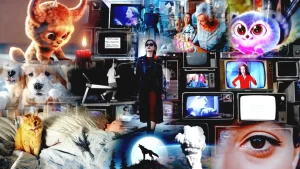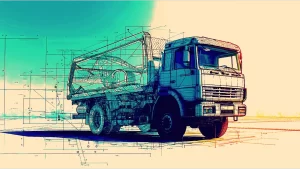In an era marked by relentless technological advancement, the trajectory of the workforce is undergoing a profound transformation. Artificial Intelligence (AI) has emerged as a pivotal force shaping the world of work. In this article, we will delve into the intricate tapestry of AI’s role in the future of work and underscore the paramount importance of adaptation.

AI Redefining Labor Dynamics
The landscape of work as we know it is evolving at an unprecedented pace, and at the heart of this transformation lies AI. No longer confined to manual tasks, AI’s capabilities have expanded dramatically, embracing cognitive functions that were once deemed exclusive to humans. White-collar professions, traditionally considered immune to automation, now stand at the precipice of profound change.
AI algorithms are not merely automating routine tasks; they are assuming roles previously reserved for human expertise. Legal contracts, medical diagnoses, financial portfolio management, and even journalistic reporting now bear the mark of AI’s influence. Creative domains, once considered beyond the reach of automation, are also under the AI purview. Music composition, artistic creations, and scriptwriting now benefit from the creative touch of AI.
The Importance of Adaptation
In the face of this monumental shift, the question arises: How can individuals thrive in a world increasingly dominated by AI? The answer lies in adaptation, a quality inherent to humanity. As the AI revolution marches forward, those who succeed will be those who embrace change, learn continuously, and acquire skills that complement AI.
The Importance of Lifelong Learning
The cornerstone of thriving in the AI-dominated workforce of tomorrow is lifelong learning. Stagnation is the enemy; embracing a mindset of constant growth is the key. Continuously acquiring new skills and knowledge that AI cannot replicate is essential. These may include skills that emphasize creativity, empathy, complex problem-solving, and emotional intelligence—attributes that remain distinctly human.
Complementary Skills
Rather than competing with AI, individuals can focus on developing complementary skills that enhance the capabilities of AI. Collaboration with AI systems can lead to unprecedented efficiency and innovation. This synergy between human ingenuity and AI’s analytical prowess is where the future workforce will find its strength.
Embracing Uncharted Territories
History attests that the most successful individuals have been the ones who dared to venture into uncharted territories, exploring new horizons and leaving competitors in the dust. The same holds true for the AI era. To thrive in this ever-evolving landscape, we must dare to push the boundaries of what we believe is possible. This means stepping out of our comfort zones, being open to innovation, and pursuing ambitious endeavors.
Conclusion
In the race to excel in an AI-dominated world, the victors will be those who continue to learn, adapt, and dream big. AI is not a threat to human employment; it is an opportunity for humans to evolve and elevate themselves to new heights. The importance of adaptation cannot be overstated, as it will determine the divide between those who flourish in the age of AI and those who struggle to keep pace.
It becomes clear that AI is a powerful ally rather than an adversary. By harnessing its capabilities and complementing them with our own, we can shape a future where AI enhances, rather than replaces, human potential.











Welcome to our comments section!
We value your feedback and encourage you to share your thoughts in the comment section. Let’s keep the conversation meaningful, respectful, and inclusive.
For the best user experience, commenting is closed after an article has been posted for seven days. Please ensure your comments align with our Community Guidelines.